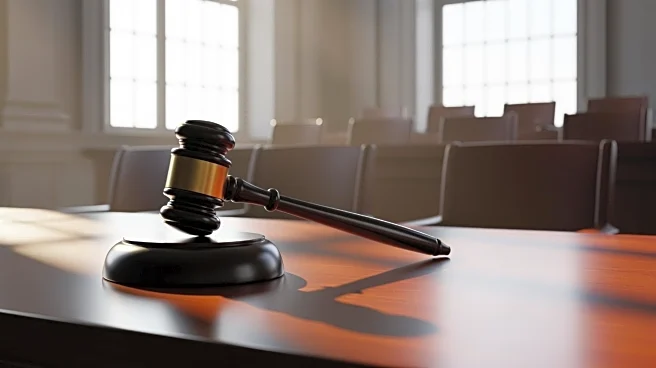What's Happening?
A federal court hearing is set to address a lawsuit filed by D.C. Attorney General Brian Schwalb against the Trump administration, seeking to halt the deployment of 2,500 National Guard members in Washington, D.C. The lawsuit argues that the deployment infringes
on D.C.'s autonomy and exceeds legal authority by engaging in law enforcement activities. The Trump administration, which ordered the deployment during a declared 'crime emergency,' contends that the troops are merely supporting police efforts and not directly enforcing the law. The case could set a legal precedent regarding the president's control over the D.C. National Guard.
Why It's Important?
The outcome of this case could have significant implications for the balance of power between federal and local authorities in Washington, D.C. If the court sides with the D.C. Attorney General, it may limit the president's ability to deploy the National Guard in the capital, potentially affecting future federal responses to local issues. Conversely, a ruling in favor of the Trump administration could affirm the president's broad authority over the D.C. National Guard, impacting how federal resources are utilized in the city. This case also touches on broader themes of federalism and the use of military forces in domestic law enforcement.
What's Next?
The court's decision on whether to grant a temporary block on the National Guard deployment is pending. If the judge rules in favor of the D.C. Attorney General, the Trump administration may appeal the decision, prolonging the legal battle. Meanwhile, the National Guard's presence in D.C. could continue, with plans for a potential extended mission into next summer, coinciding with the country's 250th anniversary celebrations. The case's progression will be closely watched by legal experts and policymakers, given its potential to influence future federal and local government interactions.
Beyond the Headlines
This legal challenge raises questions about the Posse Comitatus Act, which restricts the use of federal military forces for domestic law enforcement. The case could prompt a reevaluation of the legal frameworks governing military involvement in civilian affairs, especially in unique jurisdictions like Washington, D.C. Additionally, the deployment's impact on local governance and public perception of federal intervention in city affairs may have lasting effects on the relationship between D.C. residents and the federal government.
















